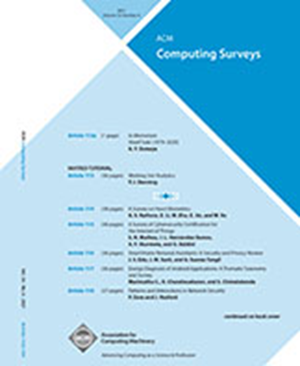Deep Learning Based Image Aesthetic Quality Assessment- A Review
IF 28
1区 计算机科学
Q1 COMPUTER SCIENCE, THEORY & METHODS
引用次数: 0
Abstract
Image Aesthetic Quality Assessment (IAQA) spans applications such as the fashion industry, AI-generated content, product design, and e-commerce. Recent deep learning advancements have been employed to evaluate image aesthetic quality. A few surveys have been conducted on IAQA models; however, details of recent deep learning models and challenges have not been fully mentioned. This paper aims to fill these gaps by providing a review of deep learning IAQA over the past decade, based on input, process, and output phases. Methodologies for deep learning-based IAQA can be categorized into general and task-specific approaches, depending on the type and diversity of input images. The processing phase involves considerations related to network architecture, learning structures, and feature extraction methods. The output phase generates results such as scoring, distribution, attributes, and description. Despite achieving a maximum accuracy of 91.5%, further improvements in deep learning models are still required. Our study highlights several challenges, including adapting models for task-specific methodology, accounting for environmental factors influencing aesthetics, the lack of substantial datasets with appropriate labels, imbalanced data, preserving image aspect ratio and integrity in network architecture design, and the need for explainable AI to understand the causative factors behind aesthetic judgments.基于深度学习的图像审美质量评价综述
图像审美质量评估(IAQA)涵盖了时尚行业、人工智能生成的内容、产品设计和电子商务等应用。最近的深度学习进展已被用于评估图像的美学质量。对IAQA模型进行了一些调查;然而,最近的深度学习模型和挑战的细节并没有被充分提及。本文旨在通过回顾过去十年中基于输入、过程和输出阶段的深度学习IAQA来填补这些空白。基于深度学习的IAQA方法可以根据输入图像的类型和多样性分为一般方法和特定任务方法。处理阶段涉及到与网络架构、学习结构和特征提取方法相关的考虑。输出阶段生成诸如评分、分布、属性和描述等结果。尽管达到了91.5%的最高准确率,但深度学习模型仍然需要进一步改进。我们的研究强调了几个挑战,包括适应特定任务方法的模型,考虑影响美学的环境因素,缺乏具有适当标签的大量数据集,不平衡的数据,在网络架构设计中保持图像长宽比和完整性,以及需要可解释的人工智能来理解美学判断背后的因果因素。
本文章由计算机程序翻译,如有差异,请以英文原文为准。
求助全文
约1分钟内获得全文
求助全文
来源期刊

ACM Computing Surveys
工程技术-计算机:理论方法
CiteScore
33.20
自引率
0.60%
发文量
372
审稿时长
12 months
期刊介绍:
ACM Computing Surveys is an academic journal that focuses on publishing surveys and tutorials on various areas of computing research and practice. The journal aims to provide comprehensive and easily understandable articles that guide readers through the literature and help them understand topics outside their specialties. In terms of impact, CSUR has a high reputation with a 2022 Impact Factor of 16.6. It is ranked 3rd out of 111 journals in the field of Computer Science Theory & Methods.
ACM Computing Surveys is indexed and abstracted in various services, including AI2 Semantic Scholar, Baidu, Clarivate/ISI: JCR, CNKI, DeepDyve, DTU, EBSCO: EDS/HOST, and IET Inspec, among others.
 求助内容:
求助内容: 应助结果提醒方式:
应助结果提醒方式:


